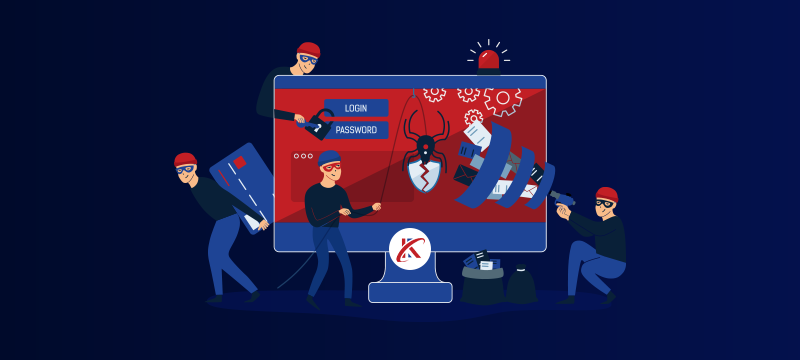A lot of business owners think that because they have a small website, it is unlikely to get hacked. Unfortunately, this is not the case, cybercriminals have uses even for the smallest websites. Here, we look at some of the reasons hackers attack websites and the benefits they gain from doing so.
- Prank attacks
Not all hackers belong to serious criminal gangs. Sometimes you’ll find youth’s hacking into weak websites just for the fun of it and carrying out the cyber equivalent of petty crime. They’ll change the text and replace images, often with something immature that they’ll find humorous.
Schools are often targeted as a way of pranking teachers or just proving a point. However, any website can become a victim of such an attack, the UK’s biggest angling equipment retailer, for example, recently suffered an attack where visitors were redirected to an adult website. - Protest and revenge hacks
Websites sometimes get hacked by cybercriminals making a protest or by someone carrying out an act of revenge. Protest hacks are usually carried out against businesses, people and organisations that have done or said something that others disagree with. If organised protest groups are disagreeing with you, the chances of being hacked are much bigger. For example, if you run an abattoir, there’s always a chance that animal rights protesters will try to take down your site.
Vengeance attacks are often the result of a disgruntled employee, usually someone with access to the backend of the website, wanting to get back at the company. If you dismiss such an employee, it is important to delete their user account as soon as possible. - Sending spam
As websites can be set up to send automated emails, professional gangs try to gain access so they can use your site as a spam machine. They’ll create email accounts and set up automated messages that get sent without you knowing. Not wanting to use their own email address, yours will act as the perfect disguise to send phishing emails to unsuspecting victims, some of whom will be your own subscribers. If your site is used to send spam, you’ll find your server eventually gets blacklisted, so none of your emails reach their recipients. - Spammy backlinks
A website can get a serious boost in its search engine rankings if it has backlinks from other reputable websites. Those links can also send a lot of traffic just through people clicking on them.
Cybercriminals know this and will hack reputable websites so that they can sneakily insert backlinks to their own malicious websites in the hope that it will make them look more legitimate to search engines. - Malicious redirects
While the redirect suffered by the angling company mentioned above may well have been a prank, criminal gangs carry out redirects for much more malicious purposes. They will clone your site and then use the redirect to send your visitors to that site instead. As the site is a replica, your visitors won’t know they have been sent to a fake site and this makes it easy for cybercriminals to steal login credentials and payment details from them. Craftily, once the damage is done, the fake site will sometimes send the visitor back to your real website so customers are none the wiser. - Malware infection
An attack that infects your website with malware enables cybercriminals to take control of your site remotely and spread the malware to your visitor’s devices. There is a multitude of different malware that can be used and these include keystroke loggers that let the attackers find out login credentials to financial accounts or steal personal information. - Ransomware infection
A specialised form of malware, ransomware encrypts your entire website so that you and anyone that visits will be unable to gain access. When you try to log in, you’ll see a message asking for a ransom fee and shown contact details of where to send the money – usually in cryptocurrency. If you pay, you may receive the decryption key to restore your website, but this is not always the case. Sometimes, even with a decryption key, the files are corrupted and the website will need rebuilding. You can avoid paying a fee completely and not worry about corruption by taking regular backups of your website or choosing a hosting option that includes free daily backups. - To carry out a DDoS attack
Distributed denial of service (DDoS) attacks are those which bombard websites with so many simultaneous visits that their servers cannot handle the traffic and crash. To carry out these attacks, hackers need to take over thousands of computers. By hacking your website or infecting it with malware, they can get your server to continually bombard the victim’s website as part of a DDoS attack. You might be unaware this is happening, though it could affect your own server’s ability to cope with your visitors.
Conclusion
As you can see, every website provides a hacker with an opportunity to carry out their criminal activities and this makes all sites a potential target. To defend your website, you need robust security in place. Not only do you need strong passwords and two-factor authentication for logins; you also need the advanced firewalls and security tools of a host, like WHUK, to defend your site from the wider range of attacks.
For more information about our secure hosting plans, visit our homepage.

